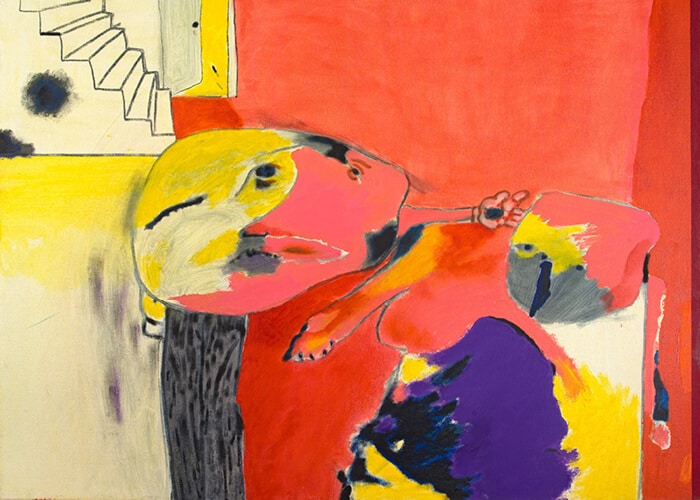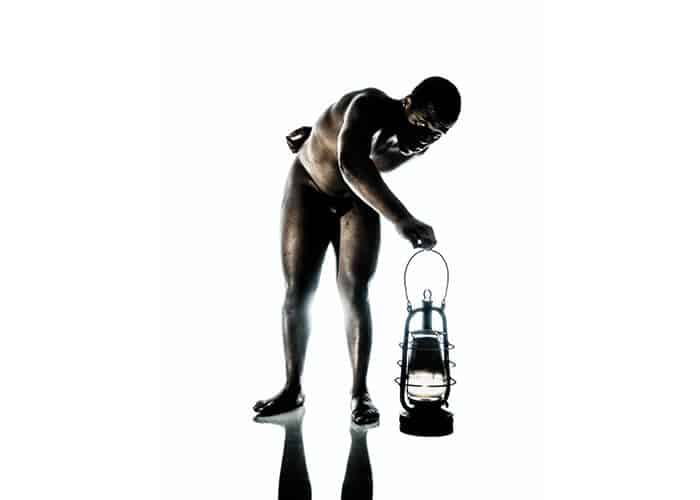Norman Catherine, Shadow Boxer, 2013, Oil on Canvas, 180 x 150cm. Courtesy of CIRCA Gallery.
Ashraf Jamal: How does it feel to be the god-father of SA Pop? A big ask, I know, but I speak as a great admirer.
Norman Catherine: First time I’ve heard of being the god-father of anything but maybe its a good thing, maybe I can have some legs broken or people fed to the fishes.
AJ: Your work has always possessed a vivacity that at once child-like and dangerous. How do you maintain this unsettling edge?
NC: In SA we all live on the edge. Like many of my compatriots I’ve also experienced having a gun to my head. It therefore doesn’t take much for this danger to continue to punctuate my otherwise humourous outlook on life. I am also a news media addict and find that the politicians and business moguls give me ample fodder for satyr.
AJ: You’ve had big buyers – big business, rock stars – but how do you see yourself as a national icon?
NC: I most certainly don’t see myself as a national icon, possibly a curiosity to some. In my opinion, to be a national icon you need to be sportsman or Madiba.
AJ: Pop Art is the art of our times … why do you think it’s so huge worldwide?
NC: It is a more accessible visual art form that the general public can relate to and identify with. It is high visual impact that you don’t need a degree in art to appreciate. It draws on popular culture of the public at hand and taps into the collective unconscious of the society in which it is created. It is not an exclusive art form that only a few will understand or care to understand. The majority of people don’t have the time to cogitate on the merits of an individual artist’s self indulgent analysis of their work. They want instant visual gratification.
AJ: Your work is a big favourite amongst the youth who see you as the pioneer of a weird inner-city urban, mystical, whack, surreal energy … what do you think about your immense influence on the post-national/post-post-apartheid generation?
NC: I guess the youth relate to it because its impact is more immediate and in your face. One doesn’t need to read an art-speak essay to understand the essence of it. The youth are more inclined to use their own imagination when looking at something and are less conservative in expressing their likes and dislikes. I’m happy if I have influenced some to express themselves more freely without the constraints of what academia and curators tell them that they should be doing.



